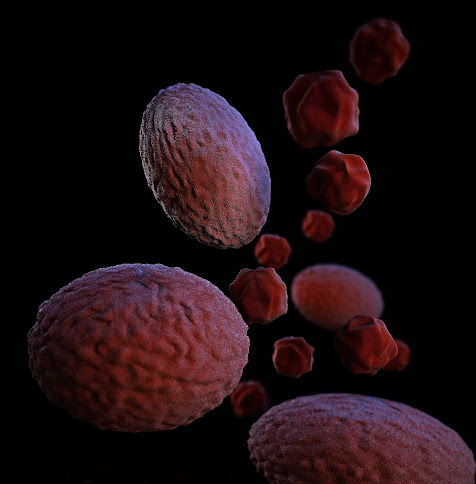Scientists from Johns Hopkins Medication and the Dana Farber Malignant growth Establishment in Boston have shown that a chemical discharged into the blood during perseverance, or vigorous, practice lessens levels of a protein connected to Parkinson's illness and ends development issues in mice.
Parkinson's sickness, a neurologic condition that makes individuals let completely go over their muscles and developments, influences around 1 million individuals in the U.S.
On the off chance that affirmed in extra lab research and clinical preliminaries, the specialists' concentrate in mice designed to have Parkinson's sickness side effects could make ready for a Parkinson's illness treatment in view of the chemical irisin.
Aftereffects of the specialists' tests seemed Aug. 31 in Procedures of the Public Foundation of Sciences.
Johns Hopkins Medication's Ted Dawson, M.D., Ph.D., and Dana Farber's Bruce Spiegelman, Ph.D., cooperated to investigate the connection between the activity atom irisin and Parkinson's illness.
For obscure reasons, perseverance practice has for quite some time been found to ease side effects of Parkinson's infection. Dawson, whose exploration centers around neurodegenerative sicknesses, including Parkinson's illness, expressed quite possibly the earliest hint to the connection between work out, Parkinson's infection and irisin came from Spiegelman, whose first paper about irisin was distributed in 2012 in Nature and thusly in other logical diaries, showing that a protein called an irisin peptide is delivered into the blood and increments with perseverance work out.
In the past 10 years, different examination offices have found that exercise lifts levels of irisin, and there is revenue in researching the relationship among irisin and Alzheimer's disease as well as Parkinson's disorder.
To test the effects of irisin on Parkinson's disorder, Dawson and Spiegelman's gatherings began with an assessment model used by Dawson in which mouse neurotransmitters are intended to spread nearly nothing, spindly strands of alpha synuclein, a protein that controls outlooks and improvements associated with the frontal cortex neurotransmitter dopamine.
Right when alpha synuclein proteins bundle, those gatherings kill dopamine-making neurotransmitters, a fundamental trigger of Parkinson's disease. Strong groups of alpha synuclein are essentially something similar, says Dawson, to what is found in the personalities of people with Parkinson's sickness.
In the lab model, the researchers found that irisin hindered the assortment of alpha synuclein bunches and its connected neurotransmitter passing.
Then, at that point, the investigation bunches gave irisin's effects a shot mice intended to make Parkinson's-like side impacts. They injected alpha synuclein into a locale of the mouse frontal cortex, called the striatum, where dopamine-conveying neurons expand.
Following fourteen days, the researchers imbued a viral vector, which extended blood levels of irisin, which can cross the blood-mind block, into the mice.
A half year sometime later, mice that got irisin had no muscle improvement deficiencies, while those imbued with a phony treatment showed deficits in hold strength and their ability to drop a shaft.
Extra investigations of synapses among the mice given irisin showed that the activity chemical brought down levels of Parkinson's sickness related alpha synuclein somewhere in the range of half and 80%. The exploration group showed that irisin likewise accelerates the vehicle and corruption of alpha synuclein through liquid filled sacs called lysosomes in synapses.
"In the event that irisin's utility works out, we could imagine it being formed into a quality or recombinant protein treatment," says Dawson, alluding to the broadening field of medication improvement pointed toward utilizing cell hereditary qualities to treat sickness. Dawson is the Leonard and Madlyn Abramson Teacher in Neurodegenerative Illnesses, teacher of nervous system science and overseer of the Johns Hopkins Establishment for Cell Designing.
"Considering that irisin is a normally delivered peptide chemical and appears to have developed to cross the blood cerebrum boundary, we think it merits proceeding to assess irisin as a likely treatment for Parkinson's and different types of neurodegeneration" adds Spiegelman.
Dawson and Spiegelman have petitioned for licenses on the utilization of irisin in Parkinson's illness. Spiegelman has made a biotechnology organization, Aevum Therapeutics Inc., situated in Boston, to form irisin into medicines for neurodegenerative sickness.
Different researchers who added to the examination remember Tae-For Kam, Hyejin Park, Shih-Ching Chou, Yu Ree Choi, Devanik Biswas, Justin Wang, Yu Shin, Alexis Loder, Senthilkumar Karuppagounder and Valina Dawson at Johns Hopkins, and Jonathan Van Vranken, Melanie Mittenbuhler, Hyeonwoo Kim, Mu An and Christiane Wrann at Harvard Clinical School.

Comments
Post a Comment